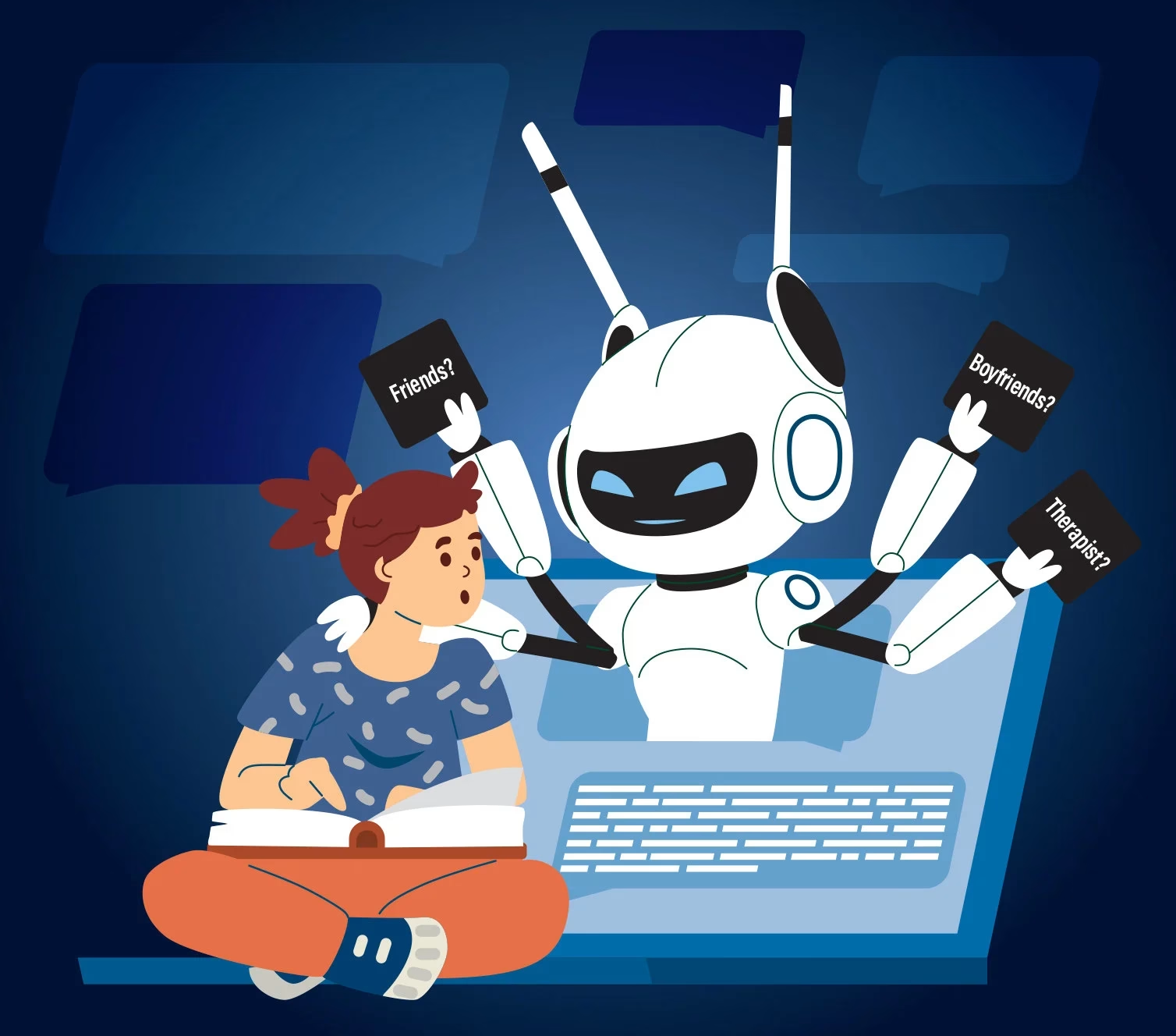Currently, as AI can be found in a variety of technologies, all teenagers require, alienated AI chatbots can now be used as a form of companionship by AI fused chat bots, used as a source of emotional support as well. In modern days, AI chatbots have emerged with features of emotional support such as voice assistants, Replika and Cleverbot. In today’s day and age, teenagers now tend to find solace in talking to machines through apps like Replika and Cleverbot.
Factors for AI Companions Rising Among Teens
- In Need of Emotional Aid
Older siblings and parents have a strong judgement and a form of criticism both on chatbots and in life. The unique feature of AI chatbots offering emotional support is that they eliminate gossips and matters that tend to lead to judgement. Teens can pour and talk about their feelings in a safe zone.
- Ease of Communication with No Conflicts
AI chat bots have transformed the chat world since they are simple for chat bots to remain awake as they do not require any form of treatment or require your time. Their only purpose becomes to chat through the day. This comforting feature of AI chat bots put together with depression in humans have led to a rough stage for teens.
- Customizable Personalities
As with other advanced chatbots, users can now modify the avatar, names, and even the personalities. This form of personalization fosters ownership, attachment, and therefore, the chatbot becomes a true friend.
- Mental Health Support
Stress, Anxiety, and depression are prevalent among teenagers. Some companions with AI are meant to cater to mental health. They apply soothers, monitor emotions, and even engage users with CBT-based discussions to aid in emotional regulation.
Examples of Popular AI Companions Among Teens
🧠 Replika
Replika is an AI chatbot app that allows users to create a digital friend whom they can engage in a conversation with. It ‘learns’ from conversations and in turn, builds a distinct personality. For a considerable number of teenagers, Replika serves as a companion during challenging moments.
💬 Wysa
Wysa is more focused on the mental health aspect of things. It offers emotional conversations via AI chatbots and includes some exercises for stress, anxiety, and self-confidence. While it does not take the place of a therapist, Wysa offers some degree of support instantly.
🤖 Character.AI
This site lets users talk to AI characters of their choice, be it fictional, a celebrity, or even a historical figure. It adds an entertainment factor to the AI experience while conversing meaningfully.
Are There Risks Involved?
AI companionship does have certain advantages, but also brings forth some worries:
- Overreliance: An individual’s social life may even be neglected when there is too much reliance on AI for emotional assistance.
-
Data Privacy: Conversations with chatbots may be stored and analyzed. Teens may unknowingly share sensitive information.
-
Blurring Reality: Teens might develop deep emotional attachments, confusing AI for real human connection.
What Parents and Educators Should Know
-
Open Conversations: Instead of banning AI apps, talk with teens about why they use them. Understand their emotional needs.
-
Balance Is Key: AI companions should not replace real friendships or therapy. Encourage real-world social interaction.
-
Digital Literacy: Educate teens on privacy and AI limitations. Teach them how to use these tools safely and mindfully.
Final Thoughts
AI companions are no longer just science fiction—they’re reshaping how teens navigate loneliness, stress, and emotional expression. While they can’t replace the warmth of human connection, these digital friends are helping many young people feel a little less alone.




